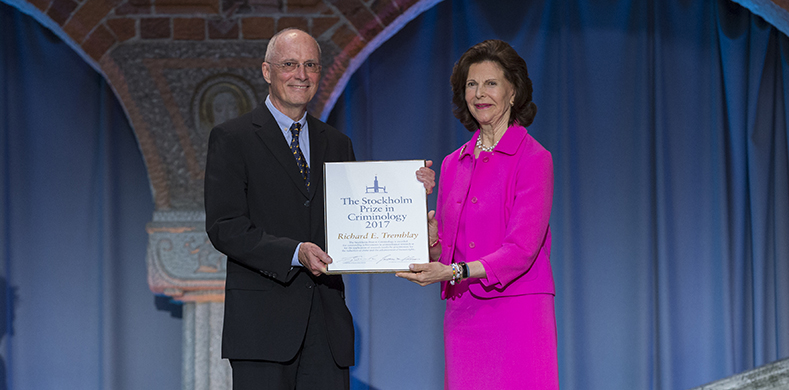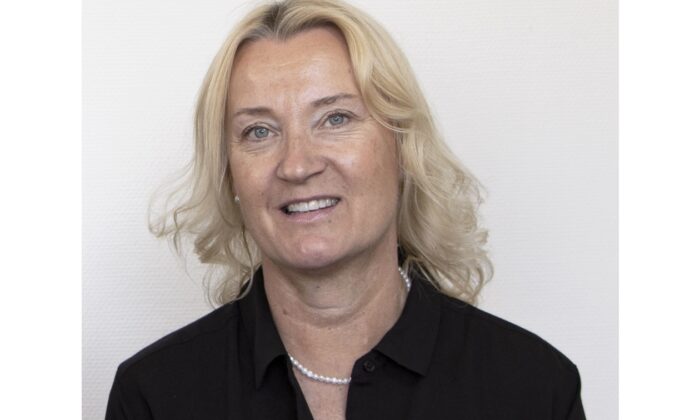Published
2016-11-30As a world-leading scientist, Tremblay was awarded the prize for finding fundamental scientific links between biology and social factors in human development. A particularly important role is attributed to parenting. Tremblay has combined this research with rigorous testing of interventions that can change some of these factors and lead to reductions in violence and crime.
The jury is rewarding a lifetime of groundbreaking research that has resulted in over 500 scientific papers. Tremblay's studies began in Montreal in the 1980s. Today, he is also active in Paris and Dublin, where his research includes prenatal crime prevention work focusing on expectant mothers in risk zones. The jury particularly noted his ability to successfully find connections between several different scientific disciplines and to link this research to classical philosophy. He has also managed to translate basic research into concrete crime prevention measures and test the effects of these measures.
Award-winning research
The jury has chosen to highlight four key aspects of Professor Tremblay's research:
- The peak of violent behavior is not at the age of twenty, but at just over 3 years of age. This realization creates many opportunities for violence prevention.
- Indications of early and recurrent violence are social, epigenetic as well as genetic, which means that they can be partly influenced and should not be accepted as inevitable.
- These indications should therefore not be ignored. For example, Tremblay showed an increased risk of violence among Canadian children with birth injuries who entered kindergarten at age 4. The development of children without such injuries benefited from preschool, while children with these injuries need a specific type of support to achieve positive development.
- Tremblay established a list of indicators to select children in need of intensive support between the ages of seven and nine. Children who received such support showed a 34% reduction in criminal behavior at age 24 compared to children with the same indicators of problems who were not selected for the intervention program. The program involved not only the children, but also their parents and teachers.

Tremblay's research offers significant potential for direct and clear recommendations for intervention programs for parents and children to prevent violence and crime. He is a leading researcher in many different scientific fields and has written articles in pediatrics, psychiatry, psychology, neuroscience, genetics, epigenetics, economics, sociology, statistics, education, hypertension, endocrinology and public health, as well as criminology.
The breadth of his work, both theoretical and empirical, provides a model for younger researchers who want to develop and test more effective ways of improving the life chances of vulnerable people. His life's work shows that this is possible by applying the results of basic research to practical work with children.
The prize was awarded in June 2017 in Stockholm City Hall.
About the prize
The Stockholm Prize in Criminology is an international prize established with the support of the Ministry of Justice and the Torsten Söderberg Foundation. It is awarded annually with a prize money of one million SEK in conjunction with the Stockholm Criminology Symposium, which is organized by the Swedish National Council for Crime Prevention.
The prize is awarded for outstanding achievements in criminological research or for the practical application of research results regarding crime prevention and the promotion of human rights.
The aim of the prize is to promote:
- increased knowledge of the causes of crime at the individual and structural level
- more effective and humane public policy regarding the treatment of criminals
- increased knowledge of alternative crime prevention measures, both in the justice system and in civil society
- practices for assisting victims of crime
- improved methods for reducing abuse of authority in the justice system on a global scale.
The prize was awarded for the first time in Stadshuset in June 2006 with the Jerry Lee Foundation as the original contributor.
Stockholm Prize in Criminology, SU



